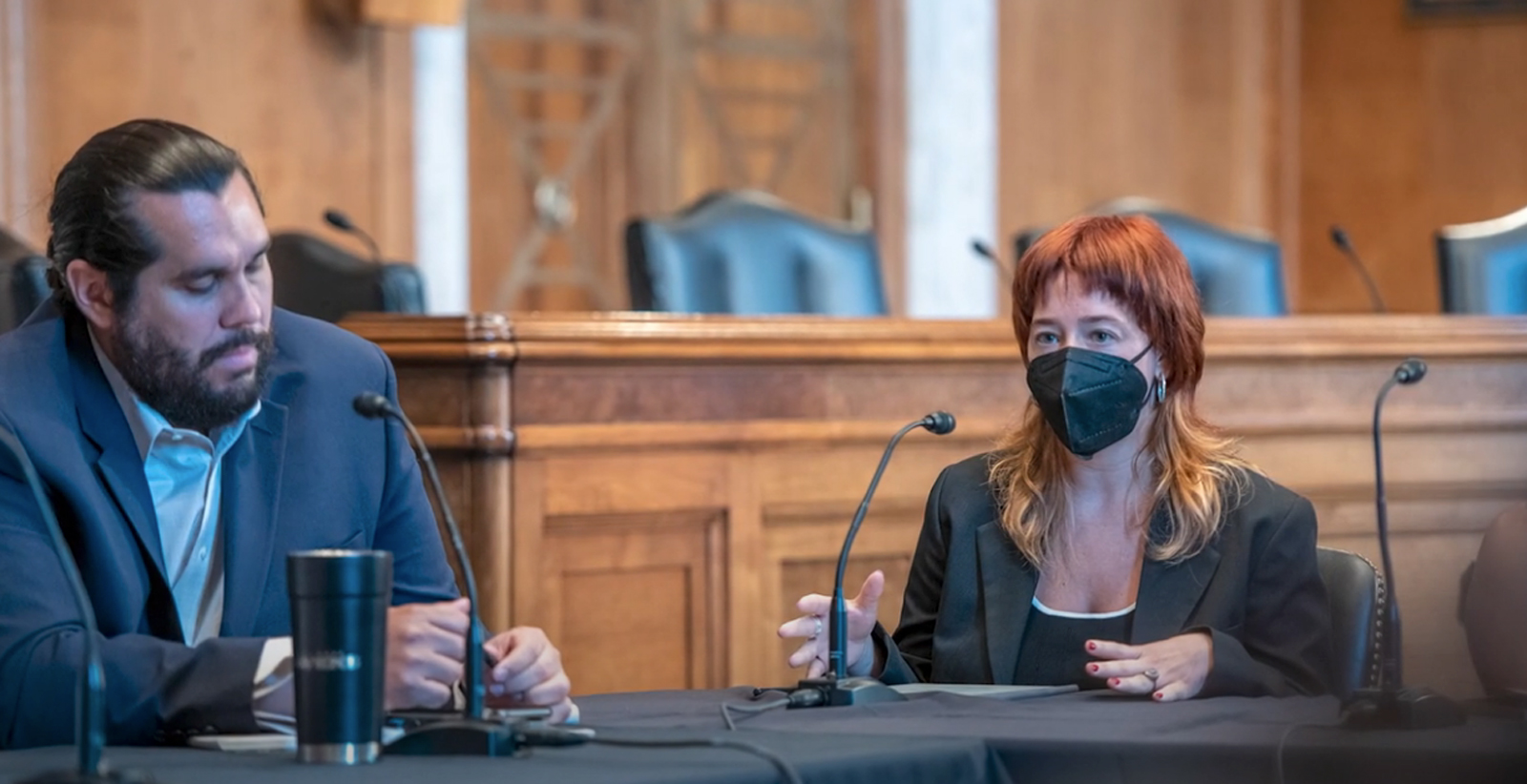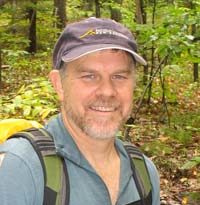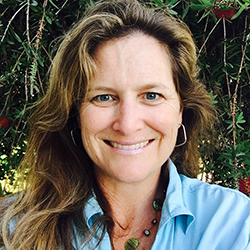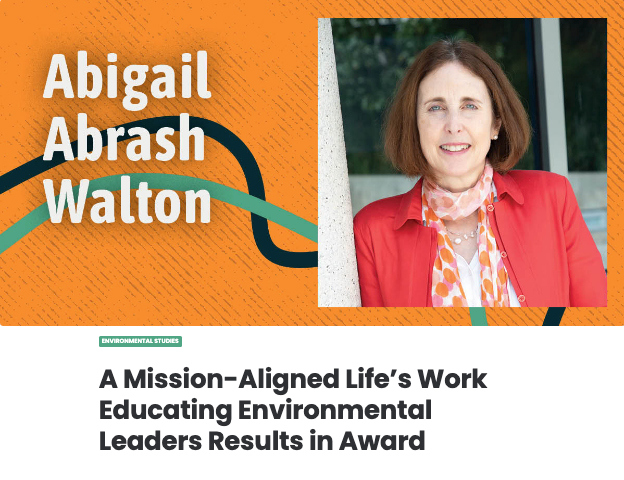MS in Environmental Studies, Advocacy for Social Justice and Sustainability
Be an effective advocate for climate solutions, biodiversity conservation, and social and environmental justice.
Advocacy is essential to forging real social justice and sustainability progress and enacting systems-level change. Whether you want to make an impact at the community, state, national, or international level, we’ll help you develop the knowledge, skills, and networks to be effective. Equip yourself with the skills to advance effective action.
Antioch’s New England campus offers this degree, available online and in person.


"I have always been drawn to nature in a way that was beyond recreation....the connection was always spiritual. By the time I was in high school, I was ready to devote myself to her protection as a career," she says. "[We need] to center the voices, needs, and experiences of Black, Indigenous, and other People of Color in the environmental movement....I’d like to permanently flip the paradigm of what it means to do environmental work in this country."
Nia Keith '09
Vice President for Diversity, Equity, Inclusion, and Justice (DEIJ), Mass Audubon
Try Us Out
Wondering if Antioch ES MS is right for you? Prospective students can earn up to three credits in a semester at a highly reduced rate. These credits are transferable into the ESMS degree.
Program Overview
Engage in policy advocacy, serve as professional staff for governmental agencies, advocacy NGOs, and political campaigns, research solutions to critical environmental and social justice challenges, or lead communications and development projects for a range of organizations. Advance clean energy. Mitigate climate change and help communities adapt to its impacts. Advance conservation and sustainable resource policy initiatives. Lead organizations committed to economic, environmental, and social justice. You choose the type of advocacy work you want to do, and we’ll help you prepare for it.
This program is affiliated with the National Professional Science Masters Association

Degree Requirements
Master of Science in Environmental Studies
This program can be completed in 5 semesters and includes a professional internship and a capstone project. Classes take place online, in the field, or on campus.
Students in all concentrations select three (9 credits) out of the following four core courses. These courses provide a multidisciplinary foundation for understanding and addressing contemporary environmental issues.
Core Areas (9 credits, select 3 out of 4 courses):
- Applied Ecological Principles (3) or Community Ecology of the New England Landscape (3)
- Earth Systems and Climate Change (3)
- Leadership for Change (3)
- Political Economy and Sustainability (3)
Concentration courses provide the conceptual and theoretical foundations in your program (6 required credits, 2 specific courses) and (15 elective credits;) provide an opportunity to develop a customized skill set that is relevant to your experience and career goals. Additional credits required include a three (3) credit professional internship and a 3-credit Capstone.
Centers and Resources
Featured skills and elective courses
The denial of scientific evidence represents an increasingly serious problem. False information and conspiracy theories about climate change have confused the public and stalled support for mitigation policies, obfuscated peoples’ recognition of the biodiversity crisis and contributed to the success of far-right populist campaigns like Brexit. But why do people believe in conspiracy theories and/or anchor to misinformed beliefs even in the face of mounting scientific evidence to the contrary? What makes a person spread information that may have little basis in scientific fact or reason? This course examines the social-psychological factors that make people vulnerable to misinformation and conspiracy theories. The course integrates psychological, political, and communications research to interrogate the causes, consequences, and tenacity of environmental misinformation and conspiracy theories (e.g., chemtrails, climate change, extinction denialism, renewable energies, etc.) and the strategies we can employ to combat it. We will examine how individuals’ susceptibility to information has been exploited, in part, by the media, political elites, and flawed information environments. Furthermore, we will assess the history and role of false information and misleading narratives in supporting the maintenance of structural inequality and power. The goal of this course is not to teach you what to think. Rather, the goal of this course is to teach you how to think about environmental/scientific information and the way it is (mis)represented.
Climate change represents a nexus of environmental and social injustice with deep roots and deeper implications for the future. Unpacking the injustice of climate change requires us to examine what/whose futures have been curtailed. Likewise, working towards climate justice requires us to be able to envision liberatory environmental futures. In this course students will engage with a wide range of environmental futures through narrative, theory, and practice. Apocalyptic and dystopic futures abound throughout the climate discourse but too often obscure more about environmental (in)justice than they reveal, reinforcing the status quo rather than providing us with tools for transforming it. The goal of this course is for students to develop their skills for discerning how climate and other environmental narratives employ environmental values towards just and unjust futures and much in between. With these skills students will undertake a research project—with both critical and creative components—that delves into the environmental narratives and futures at play in the contexts/communities central to their work and/or homes.
Additional Information
You will complete a 3-credit capstone in the form of a master’s project, thesis, collaborative service initiative, or a 2nd professional internship.
Capstone Project (choose one of the capstone options below):
Master’s Project: Typically a descriptive, applied independent research project. Students can address a sustainability challenge in their home community or international area of interest by identifying and developing a solution. Applied GIS projects also can serve as capstones. Recent MS projects include: Proposal for Angola’s Energy Transition: Assessing Conditions and Governance Dynamics; and Analysis of River Corridor Erosion and Soil Loss in the Town of Bernardston, Massachusetts.
Master’s Thesis: Typically an independent empirical research project. Recent MS Theses include: How Is Energy Justice Built Into Community Choice Aggregation? A Comparative Case Study of the Lowell Community Choice Power Supply Program and Cape Light Compact, Massachusetts; The effect of salt marsh restoration on shellfish populations in the Gulf of Maine.
Collaborative Service Initiative: The Collaborative Service Initiative (CSI) is designed to provide an opportunity for outside organizations to work with a team of 2-4 ESMS graduate students who apply their knowledge and skills to an external project that needs to be solved in the community. Projects include developing a place-based education program for a local school system, conducting applied ecological and social research, exhibit and curriculum design, energy and materials management, program/organization evaluation, curriculum and program evaluation, and other consultation projects.
Culminating Professional Internship: After consultation with their Academic Advisor, students may choose to complete a second internship in order to gain more professional experience in their field. Students who choose a second internship should consider how this second professional internship will serve as a launch pad for their post-graduate next step. As a capstone, the experience should be robust, offer significant networking opportunities, and enhance their skill set in new and challenging ways.
Combine your MS in Environmental Studies with Peace Corps service. Through the International Service Program, you can earn credit for your service, apply what you are learning to create positive change across the world and save thousands of dollars on your degree.
You should expect to spend approximately nine hours per week on each 3-credit course and 20-35 hours a week when your practicum and professional internships begin. We encourage you to plan your life carefully to accommodate the increased investment of time and energy in your professional education.
Yes, you can complete this degree fully online. These courses are synchronous and, in some cases, asynchronous. Virtual synchronous course class sessions are offered one evening during the week (Monday-Thursday evenings, ET) and on weekends. You can also choose to take courses with us in person, including field-based courses and campus-based intensives.
Students in AUNE’s Environmental Studies Master of Science (ESMS) program can choose to earn the Professional Science Master’s (PSM) designation for their degree. Learn more at the Professional Science Master’s website.
The program typically takes students five (5) semesters (20 months) to complete if attending full-time . Students who attend part-time can anticipate approximately three (3) years to complete the program. For Fulbright Scholars and those who want an accelerated path, it is possible to complete the degree in three (3) semesters (12 months).
Graduates of our MS in Environmental Studies program are employed in many sectors of environmental work, from private consulting and regulatory enforcement to conservation institutions, formal and informal educational settings, government agencies, advocacy organizations, and the arts.
Faculty Spotlights

Rachel Thiet, PhD
Core Faculty and Department Chair

Elizabeth McCann, PhD
Core Faculty

Peter Palmiotto, PhD
Core Faculty

Dawn Murray, PhD
Core Faculty
Admissions / Cost / Aid
Admission
How to Apply
- Complete the online admissions application, including:
- Essay questions, admissions and program-specific
- Resume/curriculum vitae (CV)
- Non-refundable $50 application fee
- Submit official transcripts from all colleges or universities where you earned a degree or certificate.
- email transcripts to [email protected], or
- mail to: Office of Admissions Antioch University New England 40 Avon Street Keene, NH 03431-3516
- Two letters of recommendation are required, from people who are in a position to evaluate your professional or academic work. The person making the recommendation may not be related to you.
- There are additional requirements for International applicants.
- Interview with a faculty member of the department to which you seek entry if selected. This can be in person, by phone, or via Skype.
Official transcripts should be emailed to [email protected] or mailed to: Office of Admissions Antioch University New England 40 Avon Street Keene, New Hampshire 03431-3516 All application materials submitted become part of an applicant’s file and cannot be returned.
Application Deadlines
Application Deadlines
Antioch University processes applications for most programs on a rolling basis, so we encourage you to apply as early as possible. All application materials should be received in Admissions by the dates listed below. If you have any questions, please get in touch with the Admissions Department.
| Program | Term | Deadline |
|---|---|---|
| MS Environmental Studies (All Concentrations) | Fall | July 15 |
| Spring | December 1 |
Tuition & Financial Aid
A college education is an investment in your future. Let us help you understand the costs and explore the resources available to help make your college education even more affordable. The majority of AUNE students finance their education through some form of financial aid. You may not be sure which federal, state, public, and private aid packages – such as loans, scholarships, and grants—are right for you. Our staff is here to help you so you can focus on what’s most important: beginning your academic program at AUNE.

Start your Antioch Journey
Take your next step - talk to our admissions team to find the right program for you.



